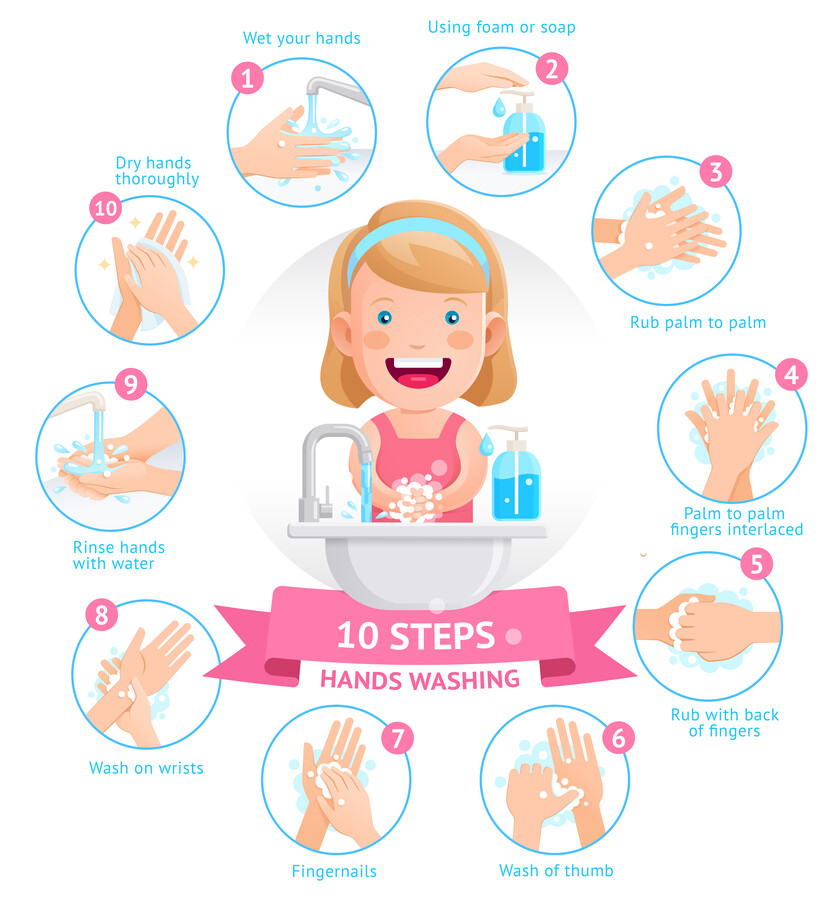~by Carol Vartuli
High-Fives for Hand Hygiene
According to the CDC, “Keeping hands clean is one of the most important steps we can take to avoid getting sick and spreading germs to others. Many diseases and conditions are spread by not washing hands with soap and clean, running water.”
It’s not just the problem of your own personal germs. “Germs get on your hands if you touch any object that someone has coughed or sneezed on, or was touched by another contaminated object.”
During the COVID pandemic, we were advised to wash, wash, wash our hands. Many of us complied with diligence. In fact, before we learned that the coronavirus wasn't transmitted by touching objects, quite a few individuals were swabbing off food packages from the grocery store, and opening their mail with rubber gloves. Tedious?
How far we’ve come. Or have we?
May 5, 2023 is World Hand Hygiene Day, and it's clear the world could benefit from a lot more soap and water.
Germs are Invisible -- but Real
Hand washing remains key in preventing infections, especially those that can ravage community-living facilities and hospitals.
Germs spread by human and animal feces cause salmonella, E. coli, and norovirus, and are spread by lack of hand washing after using the toilet, or changing a baby’s diaper. You can make yourself sick by touching your eyes or nose, and you transfer the same germs to tabletops, railings, and toys-- making anyone who touches them susceptible to illness.
The simple act of washing hands with soap and running water can decrease diarrheal illnesses by 24 - 58 percent and can prevent respiratory illnesses, including colds.
While we may not be terrified of a salmonella bout, nearly two million children around the world die from diarrheal disease and pneumonia. Handwashing in many parts of the world is done solely with water. In fact, studies show that the global rate of hand washing after toileting is just 19 percent.
According to the World Health Organization (WHO), hand hygiene is a worldwide concern, for ever-more complex reasons.
Multi-drug resistant organisms (MDROs), are increasing globally, especially in hospitals and health care facilities. MDROs are bacteria that have become resistant to many antibiotics. The illnesses they cause are then hard to treat, and easy to spread. MDROs can cause urinary tract infections, pneumonia, blood infections, and wound infections.
The overuse of antibiotics enables certain bacteria to develop resistance to them, so judicious use of antibiotics (they do NOT work on viruses!) is necessary to help prevent creating more MDROs.
Hand hygiene among health care workers, patients, and their visitors is a first-line defense to prevent the spread of illnesses caused by MRSA (Methicillin-resistant Staphylococcus aureus) and other MDROs.
Lather Up and Fight Back
The routine for effective germ-killing calls for a good lather, while humming “Twinkle-twinkle, Little Star" or "Happy Birthday."
Spending those 20 seconds with a dollop of soap and clean running water is an easy-enough habit to adopt--and not just on Hand Hygiene Day.
The information in the above article is not intended nor implied to be a substitute for professional medical advice, diagnosis, or treatment. Always seek the advice of your physician or other qualified health provider with any questions you may have regarding a medical condition.
